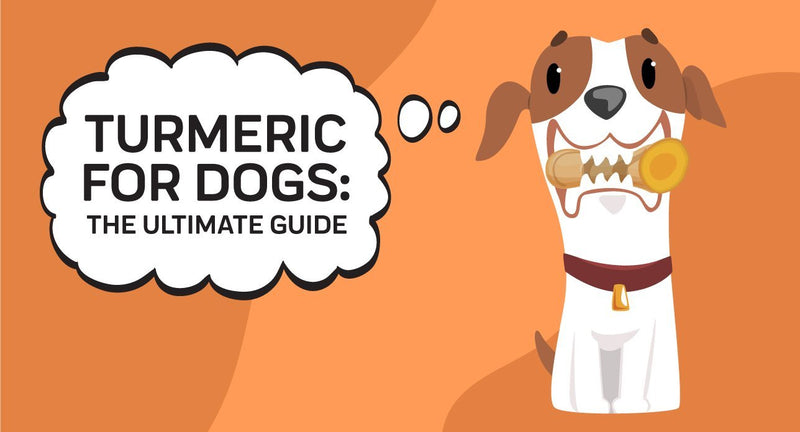When your dog is stressed, anxious or otherwise in a difficult situation, it can be very tough on everyone involved. That's why it's important to be armed with knowledge about dog sedatives and what benefits they can offer.
Sedatives for dogs, like Acepromazine, are used quite frequently for dogs, so knowing about the effects it can have is a great way to be prepared whether they react well to it or not. Like most medications, it can come with side effects as well as benefits. Let's take a look into how this medication works, and what it's used for!
What Is Acepromazine For Dogs?
Simply put, Acepromazine is a sedative that is used for a wide variety of animals, from horses all the way down to cats. Coming from the chemical Phenothiazine, it typically requires a prescription to obtain, so make sure to talk to your vet if you think your pet may benefit from it.
This medication is also one that is quite versatile, helping to avoid nausea, ease problems with stress and anxiety, and can even be used to calm animals down for minor surgical procedures or other events. It's also known to have an effect on the dopamine levels in your pet's body.
If you're new to these kinds of medications, then make sure a licensed veterinarian guides you through the process, so that you can learn how to sedate your dog effectively and safely.
What Does Acepromazine Do?
There are a number of situations in which Acepromazine is used. They can include travel, visits to a vet or groomer, stress, surgery or aggression. Below, we'll take a deeper look into when and why this medication is used, and for what effect.
Surgery
Surgery is a common time when this medication is used. Many vets use acepromazine maleate for dogs prior to surgery. It can help animals exhibiting symptoms of stress, are aggressive or skittish, or simply has a lot of energy. With acepromazine use, it can be easier to sedate the dog fully for the surgery.
Afterword, it can be used to assist in the recovery process. Dogs that may have a lot of energy may require it to keep them from being too active and causing trauma to stitches or otherwise disrupting the healing process. It also does a great job of keeping nausea at bay so that pets can heal more effectively.
Travel
For many pets, travel can be a stressful thing. While some dogs might enjoy a ride in the car, some may experience motion sickness quite easily. Further still, flying can be more stressful than fun for pets. At these times, Ace for dogs can be a useful tool to keep pets calm and avoiding nausea.
Aggression
When aggressive, or frightened dogs that may become aggressive, need to be checked out by a vet or otherwise handled, it can be a good idea to make use of a sedative, or a natural alternative like CBD to help calm them down. That way, those trying to help them don't have to worry about being bitten, and the dog can feel a little calmer during the process.
Groomer/Vet Visits
Some dogs love visiting the vet or groomer, but many others do not. Acepromazine is a useful tool in assisting those dogs that aren't fond of either visit. Dog sedatives for grooming purposes can help to calm them down, keeping both the groomer and the dog safe.
Stress
Truly, any situation that can cause your dog a lot of stress is one that this medication may be useful for. If you have a dog that seems to be frequently stressed or anxious, oral or parenteral administration of Acepromazine may help them relax. Oral Acepromazine is generally safe and well-tolerated by dogs. Talk to your veterinarian about what option may be best for your pet.
Acepromazine For Dogs Doses
If you haven't used it before, you may not know how much Aceprozamine to give a dog. The Aceprozamine dosage can vary, depending on the breed and weight of your dog, as well as the issue they are being treated for.
Generally speaking, Aceprozamine dogs may receive anywhere from 0.25mg to 1mg for each pound they weigh. For example, the dosage for a 50lb dog would be around 12mg to 50mg.
It's also important to keep in mind that this isn't a medication with an immediate sedative effect. Make sure that you provide the medication around an hour and a half before travel or other events that may be stressful to
them, as it will not work well if your dog is already in a stressful state. Furthermore, don't try to change or guess the Aceprozamine dosage for dogs, but stick to what the vet recommends for the safety of your pet.
Acepromazine can take about 45 minutes to begin working, and may last for six to eight hours at a time.
Acepromazine Dog Overdose
Symptoms of an Acepromazine overdose can include:
- Unconsciousness
- Extreme drowsiness
- Unsteady movement
- Slowed heart rate
If you notice any of these symptoms, like seeing that your Aceprozamine dog can't walk, it's important to get vet treatment for your pet as quickly as possible.
Acepromazine Drug Interactions
Before giving Acepromazine to your pet, it's important to make sure that your vet is aware of any other drugs your pet may be using. This is because it may not mix well with other medications, and your vet may know of some other options that be more effective.
This includes not only medications, but herbal remedies, supplements and flea and tick medications. There can especially be problems with opioid medications for relieving pain, worm and flea treatments that involve organophosphate insecticides, antidiarrheal medications and antacids.
If your vet is made aware of other medications and finds that the Acepromazine may not function well alongside those medications, they can create a backup plan. As a result, your dog can still get the medications they need and remain safe in the process.
When To Avoid Acepromazine
There are times when Acepromazine may not be the best choice for your pet. It's important to know and understand those circumstances so that you can avoid potentially serious adverse reactions that may leave permanent damage in your pet. Read over the following circumstances carefully, and make sure to avoid the use of this medication if any of them apply to your furry friend. That way, you can keep them happy and safe.
Heart Disease
For dogs that are suffering from heart disease, the addition of Acepromazine can place added stress on the heart. Due to the lowered blood pressure, it is forced to work harder in attempt to raise the pressure. Because of that, it is typically only prescribed in very low doses when absolutely necessary.
Acepromazine maleate can also produce prolonged depression when given in large amounts and should be used with caution in pets with liver disease or young animals.
Epilepsy
Dogs that are prone to seizures under normal circumstances can become more likely to have them while taking this medication. As a result, it's a wise choice to avoid giving it to them whenever there are other options present.
Lactating Or Pregnant
Medications like Acepromazine can end up being given to the pups if your dog is lactating or pregnant. In addition, puppies that are very young may not be able to handle the medication as well, so it's best to avoid it.
Furthermore, elderly pets can also have a hard time handling the drug, so it's best to use small dosages or none at all if that is a reasonable possibility.
Breed Sensitivities
There are also some breeds that can be more sensitive to Acepromazine. While this doesn't mean that these breeds cannot have the medication at all, it does mean that pet owners and vets need to be a little more careful in administering it.
Breeds sensitive to this medication include:
On the other side of the spectrum, terrier breeds can sometimes require a higher dose than expected, so don't be worried if that dosage prescribed for them seems a little high.
Acepromazine For Cats
Acepromazine can also be used for cats, but typically in smaller doses. To learn about the Aceprozamine dosage for cats, talk to your vet.
How Does Acepromazine Work?
Acepromazine has the ability to inhibit the receptors of dopamine. While dopamine is often thought to be a positive thing, too much of it can lead to nausea, anxiety and other unpleasant symptoms. However, by bringing down those dopamine levels, Acepromazine can spare pets from the unwanted effects.
Acepromazine Vs Xanax
While Aceorimazine and Xanax medications are rather similar, there are some differences to them that can separate when a vet might prescribe one over the other. If you want to know why your vet may have a preference, it's a good idea to ask them to find out how one option can better benefit certain situations than the other.
Does My Dog Need Acepromazine?
If you're unsure whether or not your dog can benefit from using a dog tranquilizer like Acepromazine, then it's a good idea to consult your vet on the matter. They will be able to determine how helpful the medication will be, and whether there might be others that are more helpful.
Only a vet can determine whether or not Acepromazine maleate and other prescription medications are necessary. Trying to find such medications without a prescription can be dangerous for your pet, and it can result in a waste of your money.
Acepromazine Side Effects
Just like any other medication, there are side effects that come with Aceprozamine. Some of these side effects are more common, and tend to be less serious, while others are less common and may be more serious.
Common side effects may include:
- A slower heart rate
- Unsteadiness
- Sensitivity to noises
- Low blood pressure
- Breathing more slowly
- Pale gums
Side effects that are more rare include:
- Interactions involving anesthetics that may be fatal
- Allergic reactions
- Unconsciousness
- More frequent seizures
If you notice the more serious side effects, make sure to get in contact with a vet right away to determine whether or not they need treatment, or to cease taking the medication.
Natural Calming Substances For Dogs
Some prefer to make use of natural substances for the sake of calming their dog. While these options may not have as strong of an effect as medications, they can often be less costly, more effective over time and provide fewer unwanted side effects for your canine companion.
Exercise
Regular exercise is a great way to help pets with burning off excess energy in a productive way. When they don't have that extra energy, they may be less prone to destructive behaviors as a result of anxiety. It can also help with easing things such as anxiety-induced nausea and other complications.
Chamomile
Chamomile is a useful herb that many use for easing anxiety and soothing stomach-related issues. It can also be a helpful substance for animals, allowing them to calm down in a more natural way. Giving it to them before a stressful event can allow them to get through it a but more easily.
A Comforting Atmosphere
You can't always control the area your dog will be in, but when you can it's a good idea to keep things quiet and mellow, provide them with toys or blankets that make them comfortable and try to remain calm yourself. These queues can help your dog to avoid getting too worked up.
CBD For Dogs
One of the newest natural options for dogs today is CBD. It's a completely natural, safe substance that can help in a wide variety of ways. From things like anxiety to physical inflammation and even cancer, there are few things that this substance can't help in some way with.
CBD For Anxiety
CBD can be a great option for anxiety, helping pets to remain calm and relaxed in a natural way. It's easy to administer and doesn't require the prescription of a vet. Furthermore, the hemp plants grown for the use of CBD often do not contain THC, so your pet won't feel any “high”.
Instead, they will simply gain the effects, including being relieved of anxiety as well as pain relief, and a vast multitude of benefits that scientists are still looking into. It's really a great product that can help your pet to feel better in many ways, without nasty side effects!
Top CBD Products
When you're buying CBD, it's important to find quality products. That means options that are carefully grown and organic, as the hemp plants can tend to absorb chemicals and other substances in the area they are grown. Check out these fantastic, reliable CBD products!
CBD Oil
CBD oil for dogs is one of the easiest ways to help them to feel calmer and more relaxed. It's also very easy to administer, as you can simply place a drop or two in the mouth of your dog or mix it into their food. The dropper also allows you complete control over every drop, so you can give them only as much as you see fit. The containers are also clearly labeled with the size of the animal they are intended for, as well as dosing guidelines. You really can't go wrong with this quality CBD oil! It's made to be safe, reliable, and provide quick relief to your furbaby without side effects.
CBD Treats
Another option you can make use of are CBD dog treats. These treats are enjoyable for your pet and easy for you to provide. You won't have to worry about trying to entice them to swallow a pill or otherwise take medicines they simply don't enjoy. As far as your dog knows, they're getting a special treat!
These treats are also fantastic for dogs from very small sizes to those that are over 55lbs. Just remember that it's a good idea to start with less than the recommended dose and work your way up!
Acepromazine For Dogs: The Bottom Line
When possible, it's a good idea to look for natural solutions to the problems your dog might be having. Things like anxiety and stress can be relieved through methods that are simpler, less costly and avoid the side effects that medications can have.
That said, there are absolutely situations when tranquilizers for dogs like Acepromazine maleate are needed. Talking to your vet about how and when to provide medications like these can help you to ensure they are efficient and safe for your dog. The more information you can gain, the better off you and your beloved family member will be!
Sources:
AcepromazineUse of acepromazine maleate in dogs with seizures
Actions of dopamine in anesthetized dogs
Evaluation of the analgesic properties of acepromazine maleate
Acepromazine (PromAce)
Approved by:
Dr. Ivana Vukasinovic
Doctor of Veterinary Medicine, University of Belgrade
 Ivana Vukasinovic grew up in Serbia and attended the University of Belgrade where she received a degree in Veterinary medicine in 2012 and later completed surgical residency working mostly with livestock. Her first year of practice was split between busy small animal practice and emergency clinic, and after two more years of treating many different species of animals, she opened her own veterinary pharmacy where an interest in canine and feline nutrition emerged with an accent on fighting animal obesity. In her free time, she acts as a foster parent for stray animals before their adoption, likes to read SF books and making salted caramel cookies.
Ivana Vukasinovic grew up in Serbia and attended the University of Belgrade where she received a degree in Veterinary medicine in 2012 and later completed surgical residency working mostly with livestock. Her first year of practice was split between busy small animal practice and emergency clinic, and after two more years of treating many different species of animals, she opened her own veterinary pharmacy where an interest in canine and feline nutrition emerged with an accent on fighting animal obesity. In her free time, she acts as a foster parent for stray animals before their adoption, likes to read SF books and making salted caramel cookies.
Thanks for stopping by!
P.S. We Love You!
Sincerely,
The Innovet Team
Please do not ask for emergency or specific medical questions about your pets in the comments. Innovet Pet Products is unable to provide you with specific medical advice or counseling. A detailed physical exam, patient history, and an established veterinarian are required to provide specific medical advice. If you are worried that your pet requires emergency attention or if you have specific medical questions related to your pet’s current or chronic health conditions, please contact or visit your local/preferred veterinarian, an animal-specific poison control hotline, or your local emergency veterinary care center.
Please share your experiences and stories, your opinions and feedback about this blog, or what you've learned that you'd like to share with others.

















